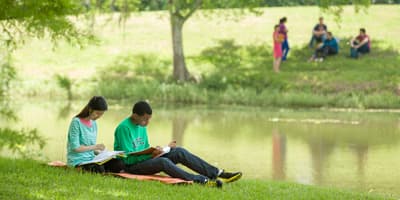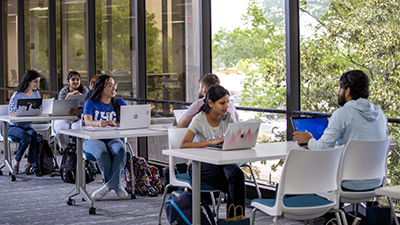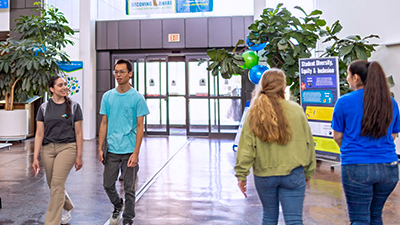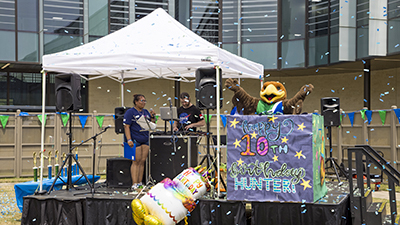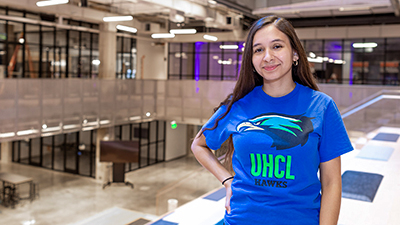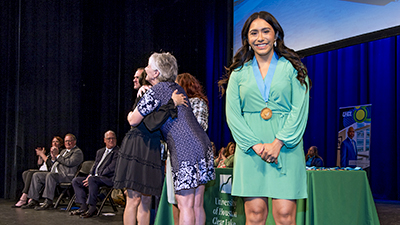UHCL profs innovate internship alternatives for graduate students
Like almost all other higher educational institutions across the country, University of Houston-Clear Lake has moved fully to online instruction. Associate Professor of Sociology Amy Lucas realized that graduate students in the midst of internships would not be able to complete their required 500 hours unless she could adapt their programs to the current circumstances, so she came up with a plan to ensure students will complete their internships and graduate on time.
“I’m the official instructor of record for master’s degree students in the College of Human Sciences and Humanities who chose internships as their capstone in psychology, behavioral sciences, cross-cultural and global studies and sociology,” Lucas said. “As of right now, we have 13 students who were working in internships, and 12 of them were trying to graduate this semester.”
Lucas said that three students had already completed their hours and several others internships had options to work remotely so they could finish their hours as well. “But some internships were closed and the nature of the work did not transition well to telecommuting,” she said. “I discussed this with my colleagues (Professor of Sociology) Christine Kovic and (Associate Professor of Psychology) Beth Hentges and together, we proposed an alternative for students to help them complete the 500 needed hours, as they were unable to accrue the time they needed with their particular internship sites.”
She said it was important to support students to make sure they graduate, despite the circumstances. “We wanted to find a meaningful alternative that would contribute to their growth as social scientists, and also benefit their internship study.”
Lucas explained that she wanted students to consider from a social scientist’s perspective, what their recommendations might be for a site during a pandemic. “After consulting with (Associate Dean of the College of Human Sciences and Humanities) Samuel Gladden, we came up with a plan,” she said. “Students will need to create suggestions as to what a pandemic might mean to that site, how it can continue operating with social distancing and other extreme measures in place, and how it can transition back to normal when the situation has passed. Then, their suggestions can be put to use if this situation were ever to arise again.”
For inspiration, she said that Professor of Interdisciplinary Studies at Salem State University Kimberly Poitevin in Massachusetts curated and shared a syllabus titled, “A COVID-19 Syllabus: An Interdisciplinary Exploration for Students, Faculty and Staff in Higher Education.” The syllabus, she explained, was an extensively curated list of resources that would help students develop the recommendations they’d be writing.
Lucas said that she and her UH-Clear Lake colleagues had adapted this syllabus to accommodate their students’ purposes and add resources and reading that will then help guide students to write their report for recommendations for their internship site.
“There are a lot of contributors on this syllabus from other universities and people can suggest readings. It’s an open resource,” she said. “Faculty and students can adapt it as needed. At this time, students are working with their internship sites and assessing how best to move forward.”
Most students have been interning since September, Lucas said, so they don’t have too many more hours. “Adapting their internships will help them get the last hours they will need to finish,” she said. “Our goal is to make sure everyone graduates and we are assuring students that this can still happen.”
Learn more about UHCL's Sociology program online.
